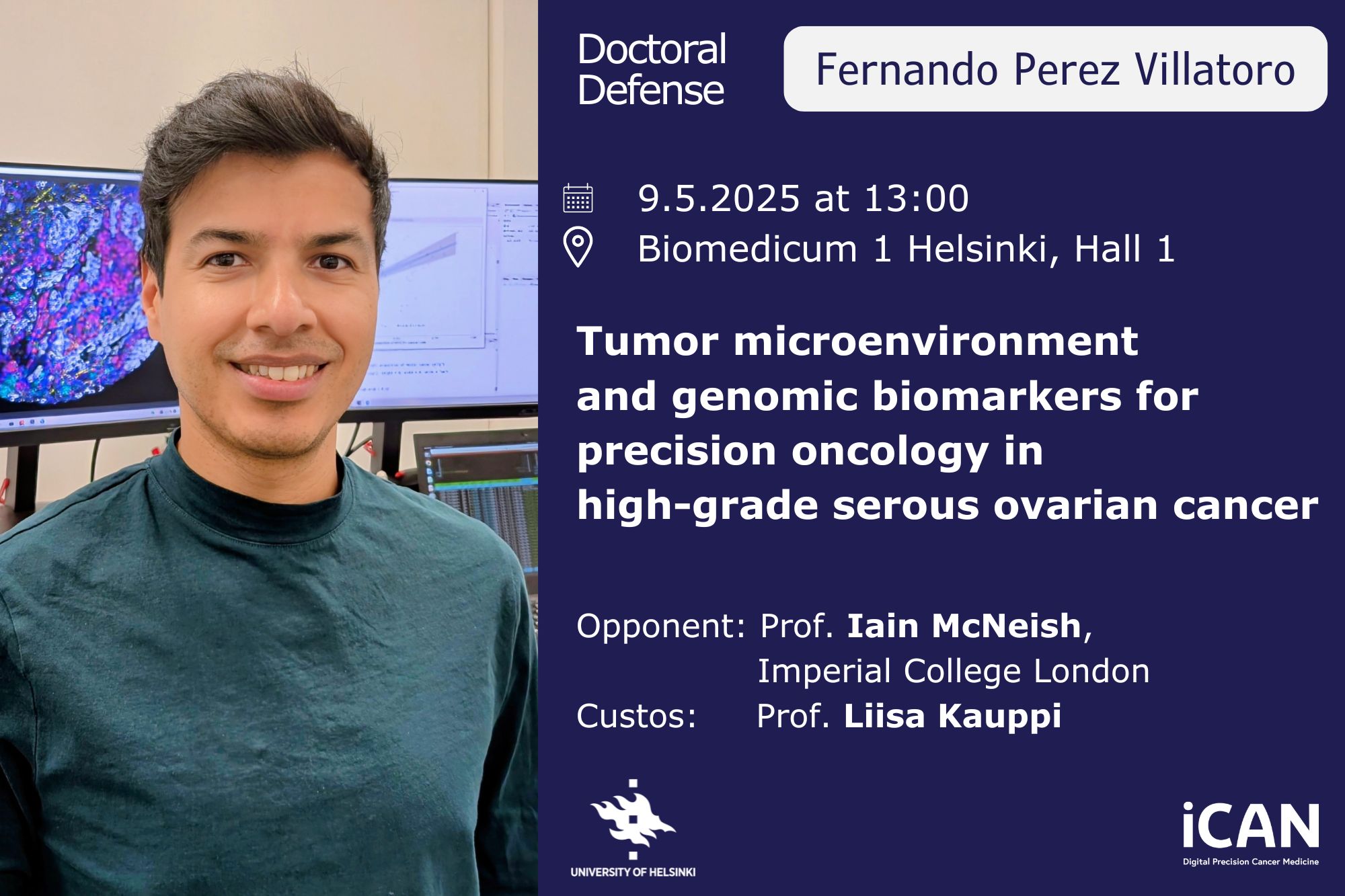Doctoral Defense of Fernando Perez Villatoro: Tumor microenvironment and genomic biomarkers for precision oncology in high-grade serous ovarian cancer
You are warmly welcomed to the doctoral defense of Fernando Perez Villatoro.
When: May 9th, 2025 at 13:00
Where: Biomedicum 1 Helsinki, Hall 1
Online event: https://video.helsinki.fi/unitube/live-stream.html?room=l37
Title: Tumor microenvironment and genomic biomarkers for precision oncology in high-grade serous ovarian cancer
Opponent: Prof. Iain McNeish, Imperial College London.
Custos: Prof. Liisa Kauppi
Thesis supervisor: Asst. Prof. Anniina Färkkilä
Thesis online: http://hdl.handle.net/10138/595106
Fernando completed his PhD at the University of Helsinki, within the Doctoral Program in Biomedicine. He is a computational biologist with expertise in multi-omics integration and spatial biology, with a keen interest in reproducible data science.
His thesis focused on developing computational tools to identify relevant patterns in the tumor microenvironment (TME) and the genomic structure of ovarian cancer, aiming to predict clinical responses and guide treatment strategies. During his research, Fernando identified and proposed two biomarkers with the potential to enhance therapeutic decision-making in high-grade serous carcinoma (HGSC). These biomarkers offer valuable insights into the tumor biology of HGSC and could ultimately improve clinical outcomes for patients.
In his first publication, Fernando developed ovaHRDscar, an in silico metric to quantify allelic imbalance in the genome of ovarian high-grade serous carcinoma (HGSC) associated with homologous recombination deficiency (HRD). He demonstrated that HGSC exhibits a distinct pattern of genomic allelic imbalances and showed that optimizing HRD detection metrics specifically for HGSC (through ovaHRDscar) improved detection rates compared to previous metrics, which were based on mixed tumor types. Since September 2022, ovaHRDscar has been used in clinical practice in Finland to guide the treatment of HGSC patients.
In his second publication, Fernando and collaborators conducted an in-depth single-cell spatial analysis of the TME using high-plex tissue imaging to identify TME biomarkers related to immune activation and prognosis. Their findings revealed that patterns of immune infiltration correlated with tumor molecular profiles, and that the spatial proximity between immune and cancer cells was a key predictor of clinical outcomes. To integrate cellular TME features with clinical data and identify prognostic markers, they developed a robust machine learning pipeline. This analysis identified MHC class II expression by cancer cells as a critical prognostic marker associated with improved survival. Validation in independent cohorts confirmed its prognostic value. Additionally, they observed that MHC class II expression by cancer cells influenced the TME, being associated with increased immune cell proximity to cancer cells and enhanced immune signaling via interferon pathway genes.
iCAN wishes Fernando all the best in the future endeavours!
You are also most welcomed to Prof. McNeish’s Science Seminar on the previous day.


